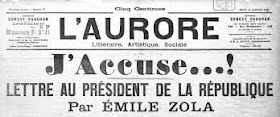It’s the top story on bulletin after bulletin of the BBC. It’s the lead in many papers.
Migrants are crossing the Channel to Britain in small boats. At considerable risk to themselves, in a sea lane with some of the heaviest traffic in the world. Though the issue that seems to preoccupy people most is the way the migrants are undermining the borders that, as the Brexit vote showed, Britain is so keen to control.
The invading hordes have now reached the total of 239 people over two months. To give a proper sense of the dire scale of this incursion, the Greeks have had 500 people arrive by boat in the last week alone. Even in Britain, the Home Office reports that there have been 7444 applications for asylum in the last quarter.
 |
| Migrants in open boats in the Channel |
Not that everyone takes such an attitude.
The Bishop of Dover, Trevor Willmott, for instance commented:
It is crucial that we all remember that we are dealing with human beings here. Across the nation, we have been celebrating the season of hope and goodwill as we remember Christ’s birth – let’s not forget so soon that every person is precious.
Nor are such sentiments limited to Churchmen or even the British. John Kelly, soon to be Donald Trump’s former Chief of Staff, recently pointed out:
Illegal immigrants, overwhelmingly, are not bad people… I have nothing but compassion for them, the young kids.
Not everyone is so generous or tolerant. Here are comments from a couple of politicians. One commented that the government waxed lyrical:
… about control of our borders and being tough on security, but cannot seem to get a grip on criminal smugglers operating a few hundred miles of coastline. We cannot allow this to continue on our doorstep.
Another invited the Home Secretary to visit Dover where the migrants arrive:
I hope Sajid Javid will come and visit Dover and see how things are here at the Dover front line, look to creating a modern Dover patrol force, with the French, to make sure that any craft found in the Channel, whichever side of the line they are, are helped back safely and soundly to the French coast.
What I find most interesting about both those statements is that either could have been made by a Conservative. In fact, only the second one was – the Tory MP for Dover, Charlie Elphicke, speaking to the BBC, apparently feels the situation is grave enough to warrant military terms, such as ‘front line’.
The other is from a tweet by Diane Abbott, Labour’s Shadow Home Secretary. I tend to think of her as a close ally of the leader, Jeremy Corbyn, though she has established quite a track record as a maverick so she may have been flying off the handle a bit here on her own initiative.
In fact, it would be good to know what Corbyn himself thinks of this manufactured ‘crisis’. But, curiously, he’s staying completely silent. Although maybe that’s not as curious as one might think: he’s done this before.
Over Brexit, he managed to stay quiet on his true position until shortly before Christmas. His admirers claim that this was a clever ploy: he knew that Labour voters were split in their view of the EU. By not committing himself either way, he could hang onto the support of both groups. The stance was hardly honest or courageous, qualities his admirers claim for him, but they felt it was judicious.
As the debate enters its final stretch, he was inevitably going to have to come clean, however. This he did in a Guardian interview where he claimed that 40% of Labour voters were Brexiters. He then declared that if elected Prime Minister, he would continue the pursuit of Brexit, putting him on the side of the 40% – and I think that number’s inflated – instead of lining up with the 60% – and I think the true figure’s higher – which you might think would have been smarter.
In any case, his refusal to take sides had simply fed the widespread suspicion that he was in fact a Brexiter. A suspicion his interview with the Guardian confirmed.
The odd thing about Corbyn is that, whatever his faults, he’s strong on speaking out for the vulnerable and underprivileged. The homeless for instance. So why hasn’t he spoken out for the people risking their lives crossing the Channel in small boats, at night, in winter? Why instead do we only have a statement from his Home Affairs spokesperson, who seems to want to reduce the issue principally to a matter of security and law enforcement?
This is where things become ugly.
A great many of the people he wants to court over Brexit only voted against EU membership out of xenophobia. They don’t like foreigners. They blame the EU for immigration and they want it curbed.
Given his track record over Brexit, and how he likes to use silence as a tactic, it’s hard to avoid the suspicion that Corbyn is keeping quiet now, to avoid offending Labour supporters who hold far right-wing views on race and immigration.
 |
| Jeremy Corbyn: you may like or dislike what he says But it's when he goes quiet that he’s at his shadiest |
Much more.













